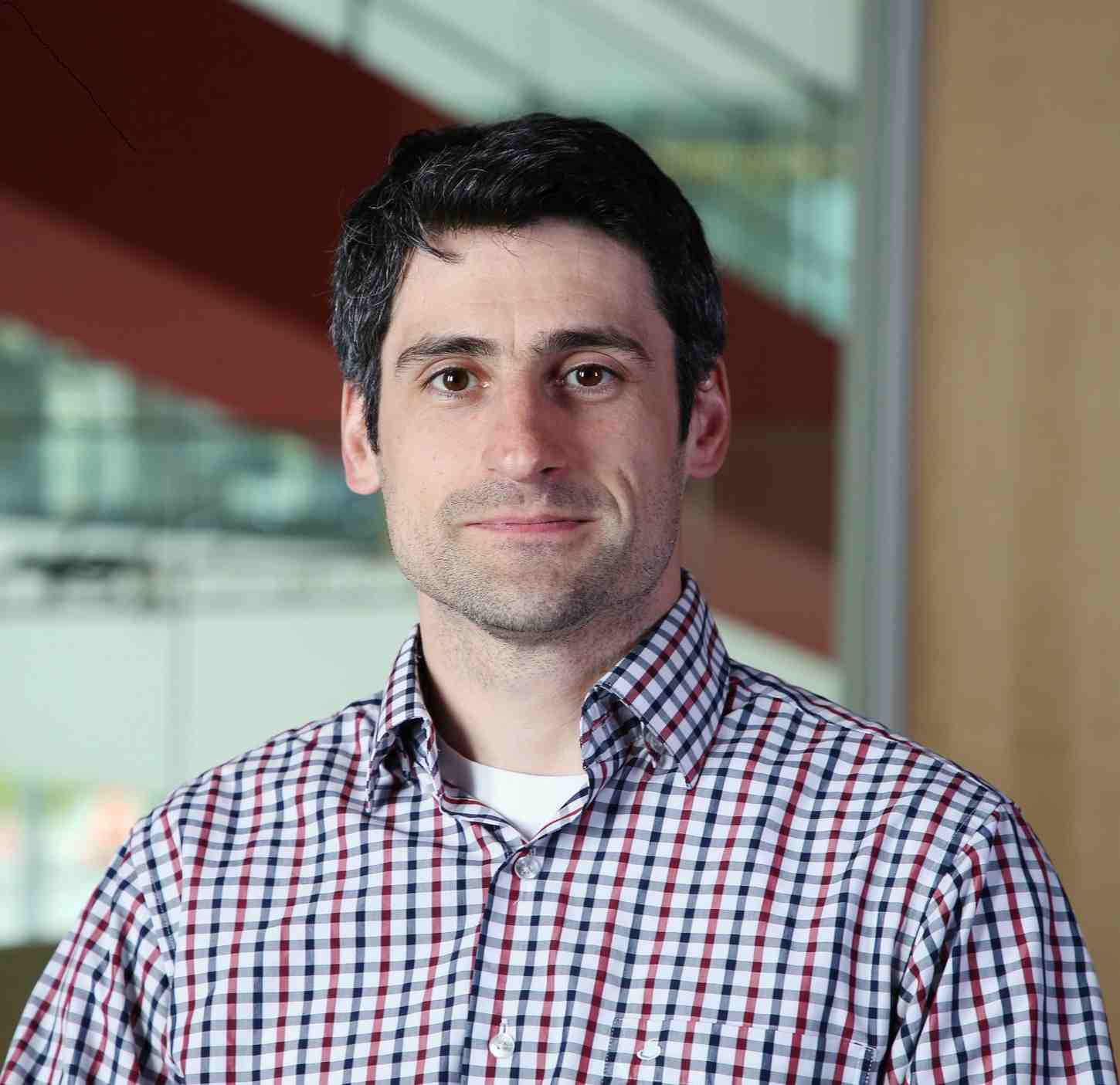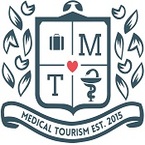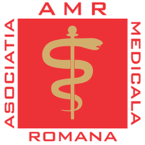Sessions or Tracks
Track 1: Cancer Therapy
Cancer therapy encompasses a range of treatments aimed at eradicating or controlling cancer cells. Common approaches include surgery to remove tumors, radiation therapy to target and destroy cancer cells with high-energy rays, and chemotherapy to kill cancer cells using drugs. Targeted therapies and immunotherapies work by focusing on specific molecules involved in cancer growth or by harnessing the immune system to attack cancer cells. Hormone therapy blocks or removes hormones that fuel certain cancers. Each treatment option is tailored to the individual, depending on the cancer type, stage, and overall health. Advances continue to improve effectiveness and reduce side effects.
Related Topics: Cancer Conference 2025 | International Cancer Conference | Oncology Conference | Cancer Research Conference | Global Cancer Summit | Cancer Symposium | Oncology Congress | Cancer Meeting | Cancer Awareness Conference | Cancer Treatment Conference | Oncology and Hematology Conference | Immuno-oncology Conference | Cancer Therapy Conference | Pediatric Oncology Congress | Cancer Immunotherapy Symposium | Euro Cancer 2025
Track 2: Cancer Research
Cancer research focuses on understanding the complexities of cancer to develop effective treatments and preventive measures. It encompasses studying cancer biology, identifying genetic and environmental risk factors, and exploring new therapies. Researchers investigate how cancers grow, spread, and respond to various treatments, including targeted therapies and immunotherapies. Clinical trials play a crucial role in evaluating new treatments and improving existing ones. Advances in cancer research aim to enhance early detection, personalize treatment, and ultimately find cures. By continually expanding knowledge and innovation, cancer research strives to reduce the burden of cancer and improve patient outcomes globally.
Related Topics: Cancer Conference 2025 | International Cancer Conference | Oncology Conference | Cancer Research Conference | Global Cancer Summit | Cancer Symposium | Oncology Congress | Cancer Meeting | Cancer Awareness Conference | Cancer Treatment Conference | Oncology and Hematology Conference | Immuno-oncology Conference | Cancer Therapy Conference | Pediatric Oncology Congress | Cancer Immunotherapy Symposium | Euro Cancer 2025
Track 3: Drug Resistance in Cancer Therapy
Drug resistance remains a major obstacle in cancer treatment. It can be intrinsic or acquired and results from genetic mutations, tumor heterogeneity, or adaptive responses within cancer cells. Mechanisms include enhanced drug efflux, DNA repair activation, and altered drug targets. Resistance limits the efficacy of chemotherapy, targeted therapy, and immunotherapy, leading to disease relapse. Understanding these mechanisms helps in developing new strategies to overcome resistance, such as combination therapies, novel inhibitors, and personalized medicine approaches. Ongoing research focuses on biomarkers for early resistance detection and ways to re-sensitize tumors to previously ineffective treatments.
Related Topics: Cancer Conference 2025 | International Cancer Conference | Oncology Conference | Cancer Research Conference | Global Cancer Summit | Cancer Symposium | Oncology Congress | Cancer Meeting | Cancer Awareness Conference | Cancer Treatment Conference | Oncology and Hematology Conference | Immuno-oncology Conference | Cancer Therapy Conference | Pediatric Oncology Congress | Cancer Immunotherapy Symposium | Euro Cancer 2025
Track 4: Cancer Prevention and Lifestyle Interventions
Cancer prevention focuses on reducing risk through healthy lifestyle choices and environmental modifications. Major modifiable risk factors include tobacco use, poor diet, obesity, alcohol consumption, and physical inactivity. Vaccinations (e.g., HPV, hepatitis B) and regular screenings (e.g., mammograms, colonoscopy) are also effective preventive strategies. Public health interventions, education, and policies targeting these factors significantly lower cancer incidence. Personalized prevention based on genetic risk is gaining attention. Promoting lifestyle changes—balanced nutrition, regular exercise, and stress reduction—has a profound impact on cancer risk reduction and overall health, highlighting prevention as a key component of cancer control.
Related Topics: Cancer Conference 2025 | International Cancer Conference | Oncology Conference | Cancer Research Conference | Global Cancer Summit | Cancer Symposium | Oncology Congress | Cancer Meeting | Cancer Awareness Conference | Cancer Treatment Conference | Oncology and Hematology Conference | Immuno-oncology Conference | Cancer Therapy Conference | Pediatric Oncology Congress | Cancer Immunotherapy Symposium | Euro Cancer 2025
Track 5: Targeted Therapy and Small Molecule Inhibitors
Targeted therapy aims to disrupt specific molecular pathways critical for cancer cell growth and survival. Small molecule inhibitors, a cornerstone of this approach, interfere with enzymes and proteins involved in cancer progression, such as tyrosine kinases and PI3K. These therapies offer higher specificity and reduced toxicity compared to conventional chemotherapy. Successful examples include imatinib for chronic myeloid leukemia and EGFR inhibitors for lung cancer. Resistance and off-target effects remain challenges, prompting research into next-generation inhibitors and combination regimens. Targeted therapies are central to personalized oncology, aligning treatment with individual genetic profiles for improved outcomes.
Related Topics: Cancer Conference 2025 | International Cancer Conference | Oncology Conference | Cancer Research Conference | Global Cancer Summit | Cancer Symposium | Oncology Congress | Cancer Meeting | Cancer Awareness Conference | Cancer Treatment Conference | Oncology and Hematology Conference | Immuno-oncology Conference | Cancer Therapy Conference | Pediatric Oncology Congress | Cancer Immunotherapy Symposium | Euro Cancer 2025
Track 6: Breast Cancer
Recent advancements in breast cancer research have opened new horizons in treatment and understanding. Innovations like targeted therapies and immunotherapies are transforming treatment outcomes by attacking cancer cells more precisely and effectively. Additionally, advancements in early detection methods, such as liquid biopsies and imaging technologies, offer improved chances for early intervention and better prognoses. These developments signify a hopeful shift towards more personalized and effective treatments, aiming to enhance survival rates and quality of life for breast cancer patients.
Related Topics: Cancer Conference 2025 | International Cancer Conference | Oncology Conference | Cancer Research Conference | Global Cancer Summit | Cancer Symposium | Oncology Congress | Cancer Meeting | Cancer Awareness Conference | Cancer Treatment Conference | Oncology and Hematology Conference | Immuno-oncology Conference | Cancer Therapy Conference | Pediatric Oncology Congress | Cancer Immunotherapy Symposium | Euro Cancer 2025
Track 7: Oncolytic Viruses and Novel Biologic Therapies
Oncolytic viruses are engineered or naturally occurring viruses that selectively infect and kill cancer cells while sparing normal tissue. They stimulate antitumor immune responses and can be combined with immunotherapy for enhanced efficacy. Talimogene laherparepvec (T-VEC) is an FDA-approved oncolytic virus for melanoma. Novel biologic therapies also include monoclonal antibodies, bispecific T-cell engagers, and fusion proteins, which harness the immune system to recognize and attack tumors. These therapies represent a shift toward precision immunotherapy, offering new hope for hard-to-treat cancers. Ongoing trials aim to refine delivery, enhance tumor specificity, and minimize immune-related side effects.
Related Topics: Cancer Conference 2025 | International Cancer Conference | Oncology Conference | Cancer Research Conference | Global Cancer Summit | Cancer Symposium | Oncology Congress | Cancer Meeting | Cancer Awareness Conference | Cancer Treatment Conference | Oncology and Hematology Conference | Immuno-oncology Conference | Cancer Therapy Conference | Pediatric Oncology Congress | Cancer Immunotherapy Symposium | Euro Cancer 2025
Track 8: Cancer Case reports
Most cancers are a set of more than a hundred syndromes that expand all the way through time in any of the body’s materials. Each type of cancer has its particular capabilities; the simple procedures that produce most cancers are pretty comparable in all sorts of the diseases. A case record is the identified document of signs and symptoms, prognosis, remedies of the exceptional wounded of positive scientific records with unique therapeutic strategies. As about 7.6 million of latest instances of malignancy documented every year, half of them are from developing countries. Case reports will be up to date from all the statistics from the beyond.
Related Topics: Cancer Conference 2025 | International Cancer Conference | Oncology Conference | Cancer Research Conference | Global Cancer Summit | Cancer Symposium | Oncology Congress | Cancer Meeting | Cancer Awareness Conference | Cancer Treatment Conference | Oncology and Hematology Conference | Immuno-oncology Conference | Cancer Therapy Conference | Pediatric Oncology Congress | Cancer Immunotherapy Symposium | Euro Cancer 2025
Track 9: Cancer Genomics and Epigenetics
Cancer genomics and epigenetics explore how genetic mutations and changes in gene expression without altering DNA sequences contribute to cancer development. Genomic studies reveal key mutations, amplifications, or deletions in cancer-driving genes, enabling targeted therapies. Epigenetic mechanisms like DNA methylation and histone modification regulate gene activity and can be disrupted in cancer. These insights help identify diagnostic markers, treatment targets, and resistance mechanisms. Integrating genomics and epigenetics into clinical practice is advancing precision oncology, allowing early detection, prognosis prediction, and more effective, individualized treatment strategies to manage and potentially cure various types of cancer.
Related Topics: Cancer Conference 2025 | International Cancer Conference | Oncology Conference | Cancer Research Conference | Global Cancer Summit | Cancer Symposium | Oncology Congress | Cancer Meeting | Cancer Awareness Conference | Cancer Treatment Conference | Oncology and Hematology Conference | Immuno-oncology Conference | Cancer Therapy Conference | Pediatric Oncology Congress | Cancer Immunotherapy Symposium | Euro Cancer 2025
Track 10: Artificial Intelligence and Machine Learning in Oncology
Artificial Intelligence (AI) and Machine Learning (ML) are revolutionizing oncology by analyzing large datasets to improve diagnosis, treatment planning, and drug discovery. AI can detect cancer in medical images with high accuracy, predict patient outcomes, and personalize treatment based on genetic and clinical data. ML algorithms help identify novel biomarkers and accelerate the development of new therapies. These technologies also support clinical decision-making by integrating data from genomics, radiology, and pathology. While challenges include data privacy and algorithm transparency, ongoing research aims to refine AI tools to deliver faster, more accurate, and cost-effective cancer care.
Related Topics: Cancer Conference 2025 | International Cancer Conference | Oncology Conference | Cancer Research Conference | Global Cancer Summit | Cancer Symposium | Oncology Congress | Cancer Meeting | Cancer Awareness Conference | Cancer Treatment Conference | Oncology and Hematology Conference | Immuno-oncology Conference | Cancer Therapy Conference | Pediatric Oncology Congress | Cancer Immunotherapy Symposium | Euro Cancer 2025
Track 11: Personalized and Precision Oncology
Personalized and precision oncology focuses on tailoring cancer treatment to the unique genetic and molecular profile of each patient’s tumor. This approach uses advanced technologies like genomic sequencing, biomarker analysis, and molecular diagnostics to identify specific mutations and pathways driving cancer growth. By targeting these abnormalities, therapies can be more effective and less toxic compared to traditional one-size-fits-all treatments. Precision oncology has led to breakthroughs in treating cancers such as lung, breast, and colorectal, especially with targeted therapies and immunotherapy combinations. Continued research aims to expand personalized options, improve early detection, and overcome resistance to enhance patient outcomes and survival.
Related Topics: Cancer Conference 2025 | International Cancer Conference | Oncology Conference | Cancer Research Conference | Global Cancer Summit | Cancer Symposium | Oncology Congress | Cancer Meeting | Cancer Awareness Conference | Cancer Treatment Conference | Oncology and Hematology Conference | Immuno-oncology Conference | Cancer Therapy Conference | Pediatric Oncology Congress | Cancer Immunotherapy Symposium | Euro Cancer 2025
Track 12: Cancer Stem Cells and Tumor Heterogeneity
Cancer stem cells (CSCs) are a subpopulation within tumors capable of self-renewal, differentiation, and tumor initiation. They contribute to therapy resistance, metastasis, and relapse. Tumor heterogeneity—genetic, phenotypic, and microenvironmental differences among cancer cells—complicates treatment response and disease progression. CSCs play a key role in this diversity. Targeting CSCs requires innovative approaches beyond conventional therapies, including epigenetic modulators and immunotherapies. Understanding the interplay between CSCs and the tumor microenvironment is vital to overcoming resistance and improving treatment durability. Addressing heterogeneity is essential for developing more effective, long-lasting cancer therapies.
Related Topics: Cancer Conference 2025 | International Cancer Conference | Oncology Conference | Cancer Research Conference | Global Cancer Summit | Cancer Symposium | Oncology Congress | Cancer Meeting | Cancer Awareness Conference | Cancer Treatment Conference | Oncology and Hematology Conference | Immuno-oncology Conference | Cancer Therapy Conference | Pediatric Oncology Congress | Cancer Immunotherapy Symposium | Euro Cancer 2025
Track 13: Tumor Microenvironment and Cancer Metastasis
The tumor microenvironment (TME) consists of surrounding blood vessels, immune cells, fibroblasts, and signaling molecules that interact with cancer cells. It plays a crucial role in tumor growth, immune evasion, and metastasis. Changes in the TME can promote cancer progression by enabling tumor cells to invade nearby tissues and spread to distant organs. Understanding TME dynamics has led to the development of therapies targeting angiogenesis, immune suppression, and stromal support. Research into the TME’s role in drug resistance and immune response is expanding therapeutic opportunities, especially in combination with immunotherapy and anti-metastatic treatments.
Related Topics: Cancer Conference 2025 | International Cancer Conference | Oncology Conference | Cancer Research Conference | Global Cancer Summit | Cancer Symposium | Oncology Congress | Cancer Meeting | Cancer Awareness Conference | Cancer Treatment Conference | Oncology and Hematology Conference | Immuno-oncology Conference | Cancer Therapy Conference | Pediatric Oncology Congress | Cancer Immunotherapy Symposium | Euro Cancer 2025
Track 14: Immunotherapy and Immune Checkpoint Inhibitors
Immunotherapy, particularly immune checkpoint inhibitors, has revolutionized cancer treatment by enhancing the body’s immune response against tumors. These inhibitors target proteins like PD-1, PD-L1, and CTLA-4 that cancer cells use to suppress immune activity. By blocking these checkpoints, T-cells are reactivated to identify and attack cancer cells more effectively. This approach has shown significant success in treating cancers such as melanoma, lung, and renal cancers. However, not all patients respond equally, and some experience immune-related side effects. Ongoing research focuses on improving patient selection, combining therapies, and developing new checkpoint targets to broaden the impact of immunotherapy.
Related Topics: Cancer Conference 2025 | International Cancer Conference | Oncology Conference | Cancer Research Conference | Global Cancer Summit | Cancer Symposium | Oncology Congress | Cancer Meeting | Cancer Awareness Conference | Cancer Treatment Conference | Oncology and Hematology Conference | Immuno-oncology Conference | Cancer Therapy Conference | Pediatric Oncology Congress | Cancer Immunotherapy Symposium | Euro Cancer 2025
Track 15: Liquid Biopsies and Circulating Tumor DNA (ctDNA)
Liquid biopsies are a non-invasive method to detect cancer by analyzing circulating tumor DNA (ctDNA) in blood. ctDNA originates from cancer cells and offers real-time insights into tumor dynamics. This technique is valuable for early detection, monitoring treatment response, detecting minimal residual disease, and identifying resistance mutations. Unlike tissue biopsies, liquid biopsies can be repeated frequently with minimal discomfort. They are especially useful in tracking cancer progression and guiding personalized therapies. As technologies advance, liquid biopsies are becoming essential tools in precision oncology, offering a more dynamic and accessible approach to cancer diagnosis and management.
Related Topics: Cancer Conference 2025 | International Cancer Conference | Oncology Conference | Cancer Research Conference | Global Cancer Summit | Cancer Symposium | Oncology Congress | Cancer Meeting | Cancer Awareness Conference | Cancer Treatment Conference | Oncology and Hematology Conference | Immuno-oncology Conference | Cancer Therapy Conference | Pediatric Oncology Congress | Cancer Immunotherapy Symposium | Euro Cancer 2025
Track 16: Radiomics and Imaging Innovations in Cancer Detection
Radiomics involves extracting large amounts of quantitative data from medical images using artificial intelligence and machine learning. This approach reveals patterns not visible to the human eye and aids in cancer detection, characterization, and treatment response prediction. Innovations in imaging technologies, including functional MRI, PET-CT, and contrast-enhanced techniques, enhance tumor visualization and staging accuracy. Radiomics holds promise for non-invasive, personalized oncology by linking imaging features with molecular and clinical data. It can guide biopsy decisions, monitor disease progression, and optimize therapy selection. Integrating radiomics into clinical workflows may transform cancer diagnosis and management.
Related Topics: Cancer Conference 2025 | International Cancer Conference | Oncology Conference | Cancer Research Conference | Global Cancer Summit | Cancer Symposium | Oncology Congress | Cancer Meeting | Cancer Awareness Conference | Cancer Treatment Conference | Oncology and Hematology Conference | Immuno-oncology Conference | Cancer Therapy Conference | Pediatric Oncology Congress | Cancer Immunotherapy Symposium | Euro Cancer 2025
Track 17: Cancer Survivorship and Long-Term Care
With advances in early detection and treatment, cancer survivorship is on the rise, creating a growing need for long-term care. Survivors may face physical, emotional, and cognitive challenges related to their treatment, such as fatigue, pain, anxiety, and secondary cancers. Long-term follow-up care is essential to monitor recurrence, manage side effects, and support psychosocial health. Survivorship care plans—detailing treatment history, follow-up schedules, and wellness goals—are increasingly recommended. Integration of primary and oncology care, lifestyle interventions, and supportive services enhance quality of life. Recognizing survivorship as a distinct phase of the cancer journey is critical for comprehensive cancer care.
Related Topics: Cancer Conference 2025 | International Cancer Conference | Oncology Conference | Cancer Research Conference | Global Cancer Summit | Cancer Symposium | Oncology Congress | Cancer Meeting | Cancer Awareness Conference | Cancer Treatment Conference | Oncology and Hematology Conference | Immuno-oncology Conference | Cancer Therapy Conference | Pediatric Oncology Congress | Cancer Immunotherapy Symposium | Euro Cancer 2025
Track 18: Cell and Gene Therapy for Cancer
Cell and gene therapies represent cutting-edge strategies in cancer treatment. CAR-T cell therapy, a type of cell therapy, involves engineering a patient’s T cells to target and destroy cancer cells. Approved for some blood cancers, CAR-T is now being tested for solid tumors. Gene therapy aims to correct genetic mutations or introduce new genes to enhance anti-tumor responses. These therapies offer the potential for long-lasting remissions, especially in cases resistant to traditional treatments. Challenges include manufacturing complexity, cost, and managing immune-related side effects. Continued innovation and clinical research are expanding the scope and safety of these promising treatments.
Related Topics: Cancer Conference 2025 | International Cancer Conference | Oncology Conference | Cancer Research Conference | Global Cancer Summit | Cancer Symposium | Oncology Congress | Cancer Meeting | Cancer Awareness Conference | Cancer Treatment Conference | Oncology and Hematology Conference | Immuno-oncology Conference | Cancer Therapy Conference | Pediatric Oncology Congress | Cancer Immunotherapy Symposium | Euro Cancer 2025
Track 19: Head and Neck Cancer
Head and neck cancer encompasses a diverse group of malignancies that occur in the throat, mouth, nose, and surrounding areas. Common types include squamous cell carcinoma, often linked to tobacco and alcohol use, as well as human papillomavirus (HPV) infections. Symptoms can include persistent sore throat, difficulty swallowing, lumps, or changes in voice. Diagnosis typically involves imaging studies and biopsies. Treatment strategies may include surgery, radiation therapy, and chemotherapy, tailored to the cancer's type and stage. Early detection significantly improves prognosis, but many patients face challenges related to treatment side effects, including difficulties with speech and swallowing. Research continues to focus on better prevention, targeted therapies, and improving quality of life for survivors of head and neck cancer.
Related Topics: Cancer Conference 2025 | International Cancer Conference | Oncology Conference | Cancer Research Conference | Global Cancer Summit | Cancer Symposium | Oncology Congress | Cancer Meeting | Cancer Awareness Conference | Cancer Treatment Conference | Oncology and Hematology Conference | Immuno-oncology Conference | Cancer Therapy Conference | Pediatric Oncology Congress | Cancer Immunotherapy Symposium | Euro Cancer 2025
Track 20: Cancer Pharmacology
Cancer pharmacology plays an important role in medication development. In both the laboratory and the hospital, cancer pharmacology has had to adjust to the changing face of drug expansion by forming experimental representations and target orientated methods. It also emphases on developing new approaches to the clinical dealing of cancer over research that bridges the arenas of molecular carcinogenesis, biochemical pharmacology, radiation biology, and clinical pharmacology. It usually involves the pharmacological and oncological aspects of drugs at both.
Related Topics: Cancer Conference 2025 | International Cancer Conference | Oncology Conference | Cancer Research Conference | Global Cancer Summit | Cancer Symposium | Oncology Congress | Cancer Meeting | Cancer Awareness Conference | Cancer Treatment Conference | Oncology and Hematology Conference | Immuno-oncology Conference | Cancer Therapy Conference | Pediatric Oncology Congress | Cancer Immunotherapy Symposium | Euro Cancer 2025
Track 21: Financial Toxicity and Healthcare Disparities in Cancer Care
Cancer care often entails high costs, leading to "financial toxicity" that can adversely affect treatment adherence and quality of life. Patients may face burdensome expenses from prolonged therapies, medications, travel, and time off work. These financial stresses disproportionately impact low-income populations, uninsured individuals, and marginalized communities. Healthcare disparities are further widened by unequal access to diagnostics, cutting-edge treatments, and supportive care. Social determinants of health, including race, geography, and education, influence outcomes. Addressing these issues requires policy reforms, improved insurance coverage, transparent pricing, and targeted support programs to ensure equitable and sustainable cancer care for all.
Related Topics: Cancer Conference 2025 | International Cancer Conference | Oncology Conference | Cancer Research Conference | Global Cancer Summit | Cancer Symposium | Oncology Congress | Cancer Meeting | Cancer Awareness Conference | Cancer Treatment Conference | Oncology and Hematology Conference | Immuno-oncology Conference | Cancer Therapy Conference | Pediatric Oncology Congress | Cancer Immunotherapy Symposium | Euro Cancer 2025
Track 22: Combination Therapies and Synergistic Drug Protocols
Combination therapies utilize multiple agents or treatment modalities to target cancer more effectively. By attacking tumors through different mechanisms, these approaches reduce resistance, increase efficacy, and minimize relapse. Synergistic drug protocols aim to enhance the therapeutic effect while reducing toxicity. These may include chemotherapy, targeted therapy, immunotherapy, or radiation used in tandem. For example, combining checkpoint inhibitors with kinase inhibitors has shown promise in melanoma and lung cancers. Ongoing clinical trials are refining dose schedules and identifying effective combinations. Personalized approaches based on tumor genetics and biomarkers are key to optimizing these synergistic strategies and improving patient outcomes.
Related Topics: Cancer Conference 2025 | International Cancer Conference | Oncology Conference | Cancer Research Conference | Global Cancer Summit | Cancer Symposium | Oncology Congress | Cancer Meeting | Cancer Awareness Conference | Cancer Treatment Conference | Oncology and Hematology Conference | Immuno-oncology Conference | Cancer Therapy Conference | Pediatric Oncology Congress | Cancer Immunotherapy Symposium | Euro Cancer 2025
Track 23: Pediatric and Rare Cancers
Pediatric and rare cancers pose unique challenges due to limited research, small patient populations, and distinct biology compared to adult cancers. Pediatric cancers, such as leukemia, neuroblastoma, and brain tumors, often require specialized treatment protocols to preserve growth and development. Rare cancers, which affect fewer than 6 per 100,000 individuals annually, often lack standard treatments and clinical trial data. Increased advocacy has led to dedicated funding, collaborative research, and drug development tailored to these diseases. Advances in genomics and precision medicine offer hope, enabling targeted therapies that address the specific genetic drivers of these uncommon but impactful cancers.
Related Topics: Cancer Conference 2025 | International Cancer Conference | Oncology Conference | Cancer Research Conference | Global Cancer Summit | Cancer Symposium | Oncology Congress | Cancer Meeting | Cancer Awareness Conference | Cancer Treatment Conference | Oncology and Hematology Conference | Immuno-oncology Conference | Cancer Therapy Conference | Pediatric Oncology Congress | Cancer Immunotherapy Symposium | Euro Cancer 2025
Track 24: Cancer Vaccines: Therapeutic and Preventive
Cancer vaccines are a promising frontier in oncology, aiming to prevent or treat cancer by stimulating the immune system. Preventive vaccines, like the HPV and hepatitis B vaccines, protect against virus-induced cancers such as cervical and liver cancer. Therapeutic cancer vaccines work by training the immune system to recognize and attack existing tumors using tumor-associated antigens. Ongoing research focuses on developing personalized vaccines using neoantigens specific to a patient’s tumor. While results have been mixed, combining cancer vaccines with immunotherapies like checkpoint inhibitors shows potential. As technology advances, vaccines may become integral in cancer management and recurrence prevention.
Related Topics: Cancer Conference 2025 | International Cancer Conference | Oncology Conference | Cancer Research Conference | Global Cancer Summit | Cancer Symposium | Oncology Congress | Cancer Meeting | Cancer Awareness Conference | Cancer Treatment Conference | Oncology and Hematology Conference | Immuno-oncology Conference | Cancer Therapy Conference | Pediatric Oncology Congress | Cancer Immunotherapy Symposium | Euro Cancer 2025
Track 25: Skin Cancer
Skin cancer is the most common type of cancer, primarily caused by ultraviolet (UV) radiation from the sun or tanning beds. There are three major types: basal cell carcinoma (BCC), squamous cell carcinoma (SCC), and melanoma. BCC is the most common and least aggressive, often appearing as pearly or flesh-colored bumps. SCC is more aggressive than BCC, often manifesting as scaly, red patches. Melanoma is the most dangerous, originating in pigment-producing cells (melanocytes) and spreading quickly if not treated early. Risk factors include fair skin, excessive sun exposure, family history, and having numerous moles. Prevention includes using sunscreen, avoiding tanning beds, and regular skin checks. Early detection is key, and treatments include surgery, radiation, and topical therapies.
Related Topics: Cancer Conference 2025 | International Cancer Conference | Oncology Conference | Cancer Research Conference | Global Cancer Summit | Cancer Symposium | Oncology Congress | Cancer Meeting | Cancer Awareness Conference | Cancer Treatment Conference | Oncology and Hematology Conference | Immuno-oncology Conference | Cancer Therapy Conference | Pediatric Oncology Congress | Cancer Immunotherapy Symposium | Euro Cancer 2025
Track 26: Palliative Care and Quality of Life in Cancer Patients
Palliative care focuses on improving the quality of life for cancer patients through symptom management, psychosocial support, and holistic care. It addresses pain, fatigue, emotional distress, and other burdens associated with cancer and its treatment. Early integration of palliative care alongside curative therapies enhances patient satisfaction, reduces hospitalizations, and may even extend survival. Emphasis is placed on communication, goal setting, and respecting patient preferences. Palliative care is essential not just at end-of-life but throughout the cancer journey. By prioritizing comfort and dignity, it plays a vital role in comprehensive cancer care.
Related Topics: Cancer Conference 2025 | International Cancer Conference | Oncology Conference | Cancer Research Conference | Global Cancer Summit | Cancer Symposium | Oncology Congress | Cancer Meeting | Cancer Awareness Conference | Cancer Treatment Conference | Oncology and Hematology Conference | Immuno-oncology Conference | Cancer Therapy Conference | Pediatric Oncology Congress | Cancer Immunotherapy Symposium | Euro Cancer 2025





















